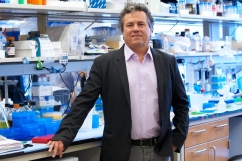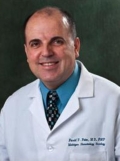
The magnolia plant is known universally for its beautiful, white and fragrant flower. But can this plant also hold the key to curing head and neck cancers that have been the scourge of smokers and alcohol users for decades now?
A recent joint study conducted by the US Department of Veteran Affairs and the University of Alabama at Birmingham showed that a compound in magnolia plant extracts can be used to shrink tumours in the head and on the neck.
The active compound found in the magnolia bark, which is said to have been used for centuries in traditional Chinese and Japanese medicine, is scientifically known as honokiol, with the chemical formula C18H18O2.
Based on research conducted by Alabama scientists, the honokiol compound can effectively block a protein called epidermal growth factor receptor, or EGFR. This protein is said to be abundant in head and neck cancer cells.
When tested on cell lines derived from human cancers of the oral cavity, larynx, tongue, and pharynx, the compound from magnolia extract was found to be effective in shutting down aberrant cells.
The researchers also tried using honokiol to shrink tumours implanted into mice, and also got promising results.
The research results show that honokiol is effective in exploiting many biochemical pathways to shrink tumours of various types, or to keep them from growing in the first place.
"Conclusively, honokiol appears to be an attractive bioactive small molecule phytochemical for the management of head and neck cancer which can be used either alone or in combination with other available therapeutic drugs," the researchers said in their study published in the journal "Oncotarget."
The magnolia plant compound was even found to be more effective in binding with the EGFR protein compared to the drug now commonly used to treat head and neck cancers, called gefitinib and sold commercially as Iressa.
















